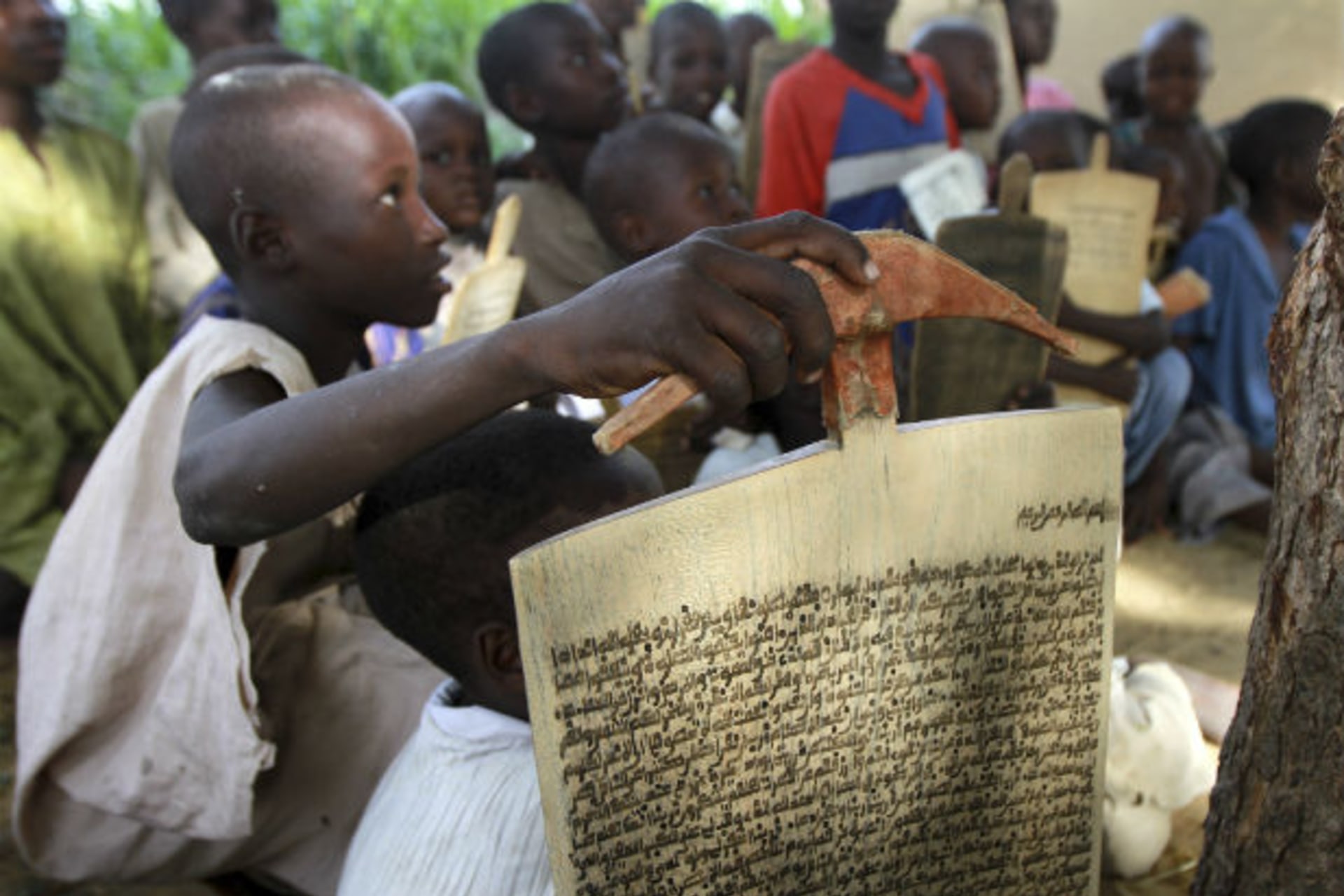Religious Roots of Boko Haram

By experts and staff
- Published
By
- Guest Blogger for John Campbell
This is a guest post by Jacob Zenn, a research analyst at The Jamestown Foundation, and Atta Barkindo, a Ph.D. candidate, SOAS, University of London.
Since launching an insurgency in northern Nigeria in September 2010, Boko Haram leader Abu Shekau and his spokesmen have issued more than thirty statements to the Nigerian press and recorded a number of videos to claim attacks. In Shekau’s and other Boko Haram leaders’ pre-2010 sermons, the languages they use are Hausa and Arabic, not English. Shekau goes so far as to claim that the English language in northern Nigeria destroyed the traditional Arabic language education system for the region’s Muslims. We have reviewed Boko Haram sermons from before 2010, and our conclusions below are directly based on our interpretation of them in their original languages. We believe a study of these sermons is an important source for understanding the evolving Islamic insurgency in northern Nigeria that has been mostly overlooked, in part because their languages make them inaccessible to most Western observers.
Boko Haram’s target audience for its propaganda has often been northern Nigerians, especially those who live in the border towns between Nigeria and neighboring Niger, Cameroon, and Chad. In Boko Haram videos and statements, Shekau and his spokesmen have tried to explain away–and even justify–the deaths of innocent Muslims in Boko Haram attacks. That Christians, the Nigerian government and security forces, and the United States, including President Obama, have become Boko Haram’s main enemies is clear in Boko Haram’s messaging.
However, what is less understood about Boko Haram is the ideology that its three main leaders espoused before 2010, including late founder Muhammad Yusuf, Shekau, and the Cameroonian Muhammad (Mamman) Nur; who according to the Nigerian media and State Security Service masterminded the August 2011 bombing of the UN Headquarters in Abuja after training in Somalia. Before 2010, they were all salafist imams preaching mostly in the Ibn Taymiyya Mosque of Boko Haram’s base state of Borno in far northeastern Nigeria. Listening to the recordings of their speeches in Hausa and Kanuri helps us understand Boko Haram ideology at a time when its leaders were speaking candidly and not issuing the type of propaganda that the group has issued since launching the insurgency in September 2010.
Here are the key characteristics of Yusuf, Shekau, and Nur’s sermons from 2009, or earlier.
Yusuf: There is no doubt Yusuf organized and transformed the ideological basis of the emerging Boko Haram before his execution in 2009. His sermons suggest that there is a need for the spiritual and moral renewal of Muslims in Nigeria and that the current Muslim leadership has failed them. His statements show that he was a salafist and sympathizer of Osama bin Laden and the Taliban. He rejected secularism and western civilization, and he was committed to jihad to cleanse the Nigerian state of corruption and impunity, while also seeking to establish an independent Islamic state within Nigeria.
Nur: Muhammad Nur appears to be more radical, aggressive, and internationally oriented than Yusuf. He believes Nigerian Muslims must counter secularism in Nigeria in every way possible, including jihad, and he speaks out against what he believes is the domination of the Muslim world by the West. Nur symbolizes the crossroads of Boko Haram from local salafism into international jihadism, which is consistent with the attack he allegedly masterminded on the UN (all other Boko Haram attacks up to that point were on Nigerian targets).
Shekau: Shekau comes across as a very persuasive speaker, excellent in classical Arabic and well versed in Islamic scholarship. He could be regarded as the key thinker and ideological weaver of the group, especially where his sermons show a synthesis of local salafist preaching with calls for international jihadism and breaking down the Western and U.S.-led world order. He venerates hard line salafists from Ibn Taymiyya to Osama Bin Laden, and his sermons suggest that he is a political instrumentalist who manipulates religious memory to advance jihad in the modern day against the Nigerian government.